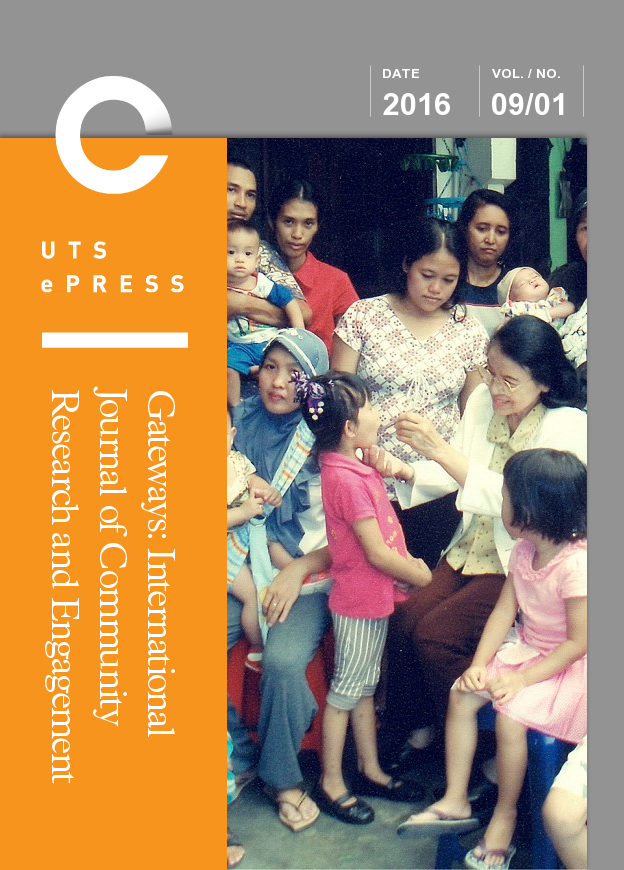'Culture' as HIV prevention: Indigenous youth speak up!
Main Article Content
Abstract
This article explores the ways in which (a) Indigenous youth involved in an HIV intervention took up and reclaimed their cultures as a project of defining ‘self’, and (b) how Indigenous ‘culture’ can be used as a tool for resistance, HIV prevention and health promotion. Data were drawn from the Taking Action Project: Using arts-based approaches to develop Aboriginal youth leadership in HIV prevention. ‘By youth, for youth’ HIV education and awareness workshops were facilitated in six Indigenous communities across Canada, incorporating traditional and contemporary art forms to explore how youth perceived the links between structural inequality and HIV vulnerability. Over 100 youth participated, with 70 partaking in individual interviews to reflect on their experiences at the workshops. Interviews were audio-recorded, transcribed verbatim and analysed using NVivo software. Indigenous youth understood culture as a complex construct that included reconnecting to land, body, history, community and ceremony. For many youth, being Aboriginal and participating in cultural activities was seen as important for intergenerational healing, empowerment, health and combatting HIV. Youth spoke excitedly of their attempts to reclaim their languages and cultures despite barriers. They also understood art as a medium for self-expression and as an important site of cultural evolution.
Our project demonstrates that the incorporation of culture within health strategies is important for effective HIV prevention amongst Indigenous youth. Reclaiming Indigenous cultures, languages and ceremonies may help to nurture future generations, diminish cycles of victimisation and combat hopelessness by reconnecting youth to stories of resistance and survival.
Keywords: Indigenous youth, culture, HIV prevention, arts-based research
Article Details
Issue
Section
Authors who submit articles to this journal from 31st March 2014 for publication, agree to the following terms:
a) Authors retain copyright and grant the journal right of first publication with the work simultaneously licensed under a Creative Commons Attribution License that allows others to share and adapt the work with an acknowledgement of the work's authorship and initial publication in this journal.
b) Authors are able to enter into separate, additional contractual arrangements for the non-exclusive distribution of the journal's published version of the work (e.g., post it to an institutional repository or publish it in a book), with an acknowledgement of its initial publication in this journal.
c) Authors are permitted and encouraged to post their work online (e.g., in institutional repositories or on their website) prior to and during the submission process, as it can lead to productive exchanges, as well as earlier and greater citation of published work (See The Open Access Citation Advantage Service). Where authors include such a work in an institutional repository or on their website (ie. a copy of a work which has been published in a UTS ePRESS journal, or a pre-print or post-print version of that work), we request that they include a statement that acknowledges the UTS ePRESS publication including the name of the journal, the volume number and a web-link to the journal item.
d) Authors should be aware that the Creative Commons Attribution (CC-BY) License permits readers to share (copy and redistribute the work in any medium or format) and adapt (remix, transform, and build upon the work) for any purpose, even commercially, provided they also give appropriate credit to the work, provide a link to the license, and indicate if changes were made. They may do these things in any reasonable manner, but not in any way that suggests you or your publisher endorses their use.
For Volume 6 (2013) and before, the following copyright applied:
Articles published by UTSePress are protected by copyright which is retained by the authors who assert their moral rights. Authors control translation and reproduction rights to their works published by UTSePress. UTSePress publications are copyright and all rights are reserved worldwide. Downloads of specific portions of them are permitted for personal use only, not for commercial use or resale. Permissions to reprint or use any materials should be directed to UTSePress.
